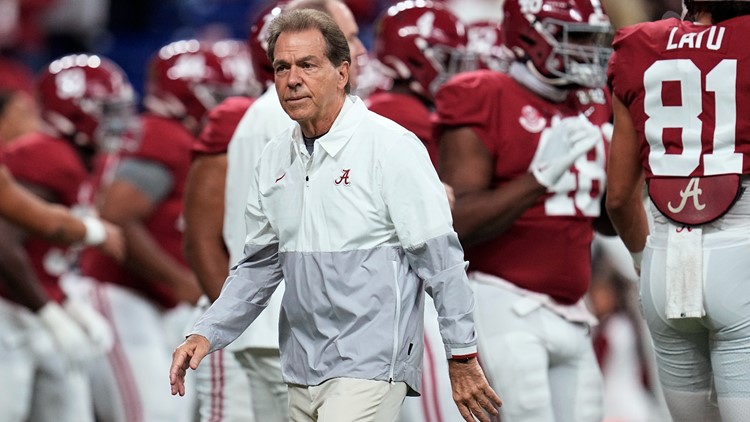SCOTTSDALE, Ariz. — The commissioners of the Southeastern Conference and Pac-12 are scheduled to meet with lawmakers in Washington on Thursday to lobby for federal legislation to regulate name, image and likeness compensation to athletes.
Greg Sankey of the SEC and George Kliavkoff of the Pac-12 plan to meet with Sen. Maria Cantwell (D-Wash.), Sen. Marsha Blackburn (R-Tenn.) and other lawmakers, a person who has been briefed on the commissioners’ trip to Capitol Hill told The Associated Press on Wednesday night.
The person spoke to AP on condition of anonymity because neither conference was making the lobbying efforts public. Sports Illustrated first reported the planned visit.
The commissioners of two of the five wealthiest conferences want to lay out the negative ramifications on college sports and athletes if the status quo remains unchanged when it comes to NIL compensation. They also plan to present a framework for a possible solution.
The NCAA lifted its ban on athletes earning money for endorsement and sponsorship deals last year, but with no detailed and uniform rules in place. Left practically unregulated, NIL has quickly become intertwined with recruiting with millions of dollars suddenly available to athletes from well-heeled donors.
Coaches and administrators are concerned that booster-funded organizations have been luring recruits and all but transferring athletes to their schools with payments that are recruiting inducements in disguise as NIL deals.
The commissioners also plan to detail the potential damage that would be done to the majority of college athletes if those who play in the high-profile sports of football and men's basketball were deemed employees of the universities and required to be paid. The NCAA and its member schools have long opposed the idea of paying athletes.
The Pac-12, Big Ten and Big 12 were among the major college football conferences holding spring meetings at the same resort in Arizona this week.
In an interview earlier Wednesday with the AP, Kliavkoff said the commissioners of the Power Five conferences were obligated to take a leadership role in shaping the future of college sports during a turbulent time.
"I believe that all of us agree on the idea that NIL is a good thing and that student athletes should be able to earn money using their name, image and likeness," Kliavkoff said. “I think we all agree that there should be a few very definitive limitations on that to prevent schools from buying kids or pay-for-play. And I think there’s alignment (among commissioners) that we believe in the collegiate model, and we think a finding by anyone that our student-athletes are employees is an existential threat to the collegiate model.”



